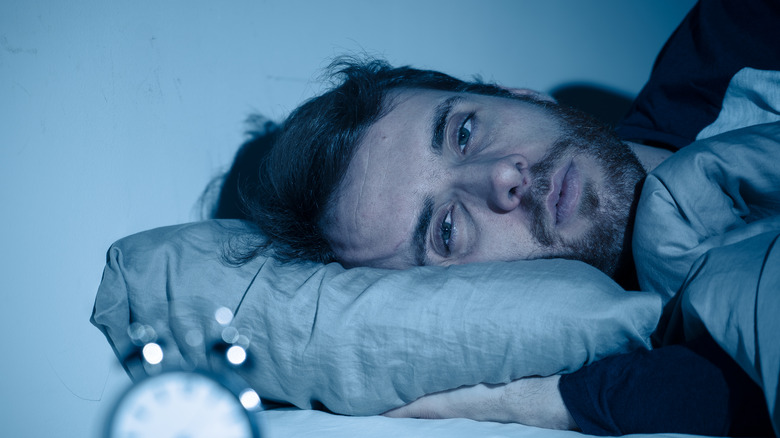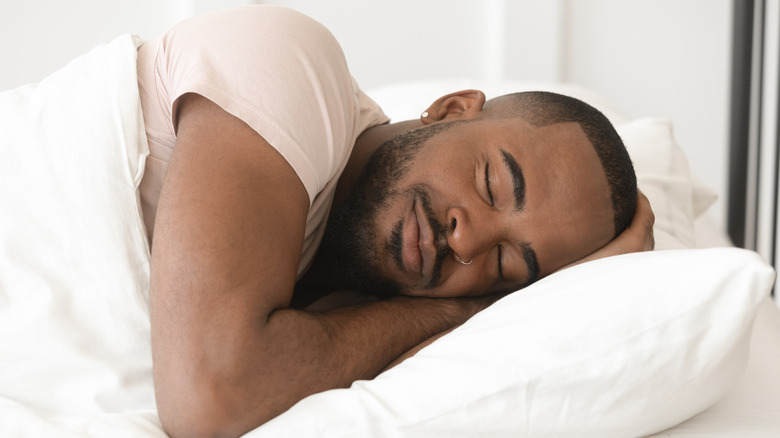The Vitamin You Need If You Have Trouble Sleeping
Do you find yourself tossing and turning in bed as you try to fall asleep at night? There are many things that can cause issues with sleep, including being low in certain vitamins. According to Bustle, vitamins and minerals are important for all functions of your body, including sleep. "When it comes to restful, restorative sleep, certain nutrient deficiencies or insufficiencies (low levels, but not enough to be considered an actual deficiency) can play a big role," said Robin Foroutan, MS, RDN, a dietitian nutritionist and spokesperson for the Academy of Nutrition and Dietetics.
You may be low in vitamin D if you can't catch any Zs. About 41% of Americans do not get enough vitamin D and low levels of this vitamin can result in sleep disorders. Being low in vitamin C can also make it difficult to sleep because vitamin C can help fight symptoms of stress. A lack of calcium may also be to blame. "Low calcium intake is associated with difficulty falling asleep," said Foroutan. "This could be because calcium helps our brain use the amino acid tryptophan to make melatonin, our sleep hormone." Talk to your doctor if you believe you are low in these vitamins or you are having trouble sleeping.
Things that happen when we sleep
Getting a good night's sleep every night is vital for the health of our bodies and minds. Melatonin, a hormone that regulates our sleep-wake cycle, is released as we prepare for sleep and helps to keep our body knocked out until it's time to wake up, when it begins to leave our system (via Sleep Foundation). Human growth hormone (HGH) is activated all over our body while we sleep and allows our muscles, bones, and tissue to regenerate. It also contributes to cell renewal and any physical healing in or on the body, like healing wounds and cuts.
Sleep allows our bodies and brains to rest and recharge after a long day of working hard. "Many things that we take for granted are affected by sleep," Raymonde Jean, MD, director of sleep medicine and associate director of critical care at St. Luke's-Roosevelt Hospital Center in New York City, told Health. "If you sleep better, you can certainly live better. It's pretty clear." If you're having trouble sleeping, speak with your doctor about what to do.


